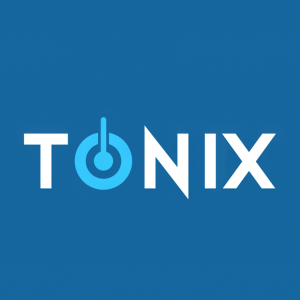Tonix (TNXP) publishes TNX-1700 animal data in Cancer Cell journal
Rhea-AI Filing Summary
Tonix Pharmaceuticals Holding Corp. (NASDAQ: TNXP) filed an 8-K to disclose new pre-clinical data on its oncology candidate TNX-1700. A peer-reviewed paper published in Cancer Cell shows the murine analogue, mTNX-1700—a fusion of murine TFF2 and serum albumin—extended survival and reduced metastases in gastric-cancer animal models. The Company believes the findings support further development of the human version, which is being explored for gastric and colorectal cancers and as a means to overcome resistance to anti-PD-1 immunotherapy. The publication is the product of a collaboration with Columbia University’s Vagelos College of Physicians and Surgeons.
The disclosure is delivered under Item 7.01 (Regulation FD) and Item 8.01 (Other Events); no financial metrics, guidance, or contractual commitments were included. Management emphasizes that the information is furnished, not filed, thereby limiting potential liability. Forward-looking-statement language highlights typical development risks and underscores that results are limited to animal studies.
Positive
- Peer-reviewed validation: Data published in Cancer Cell legitimizes TNX-1700’s scientific premise.
- Efficacy signals: mTNX-1700 improved survival and reduced metastasis in murine gastric-cancer models, supporting further development.
- Academic collaboration: Partnership with Columbia University adds external credibility to the research.
Negative
- Pre-clinical stage only: Results are limited to animal studies; no human data or trial timelines disclosed.
- No financial details: Filing lacks cost projections, funding plans, or revenue impact.
- Regulatory uncertainty: Forward-looking statements highlight risk of delays, failures, or inability to secure approvals.
Insights
TL;DR: Peer-review animal data boosts TNX-1700's scientific credibility but lacks clinical validation; modestly positive for long-term pipeline value.
The Cancer Cell publication provides independent validation of TNX-1700’s mechanism—targeting immunosuppressive neutrophils via CXCR4 modulation—and demonstrates meaningful efficacy signals in murine gastric-cancer models. Such visibility in a high-impact journal enhances scientific credibility, potentially aiding future partner or grant discussions. However, investors should temper enthusiasm: results are pre-clinical, and no IND, trial design, or timing details were furnished. Without human safety/efficacy data, valuation impact is limited in the near term.
TL;DR: Announcement is encouraging but not investment-grade catalyst; maintains high execution risk and funding needs.
Publication confirms Tonix’s ability to advance pipeline outside its core CNS focus and may improve sentiment after recent share weakness. Yet, the absence of clinical milestones, cost estimates, or financing strategy leaves dilution overhang intact. From a risk-adjusted NPV standpoint, today’s news modestly improves probability of technical success (PTS) for TNX-1700 but not enough to shift position sizing. Overall impact classified as incrementally positive but not transformative.









